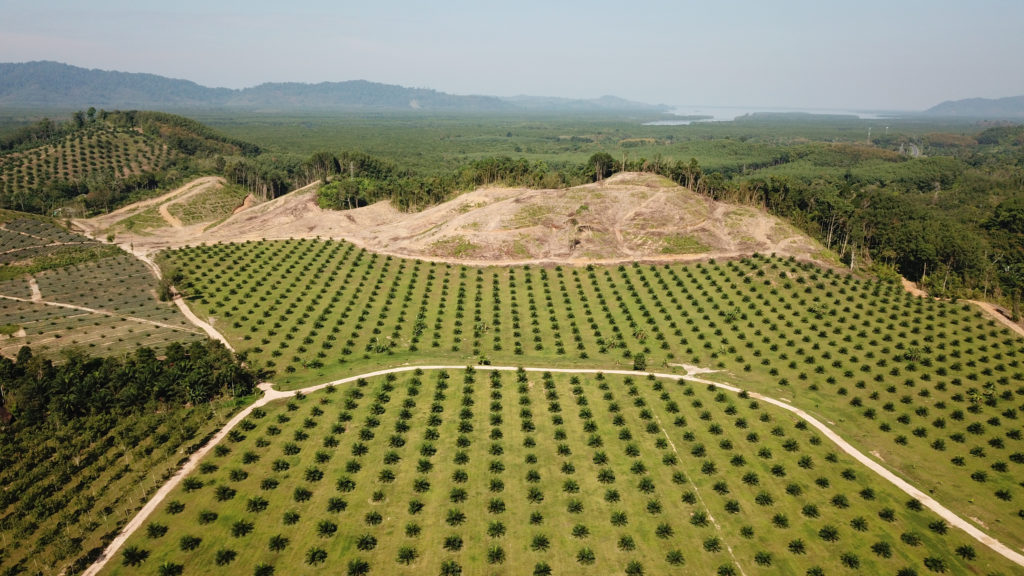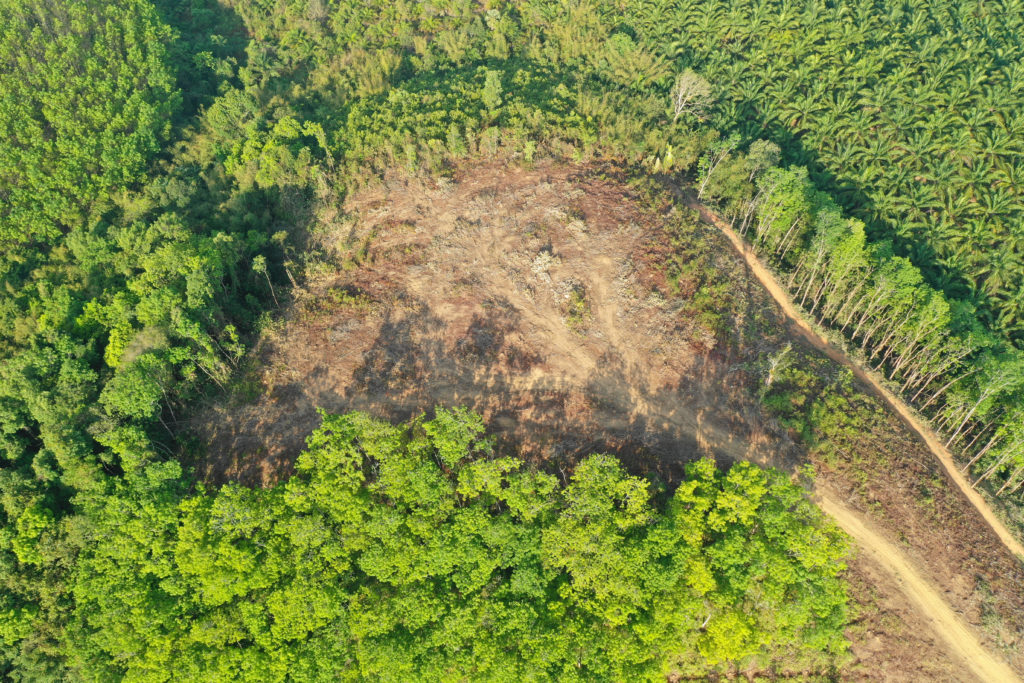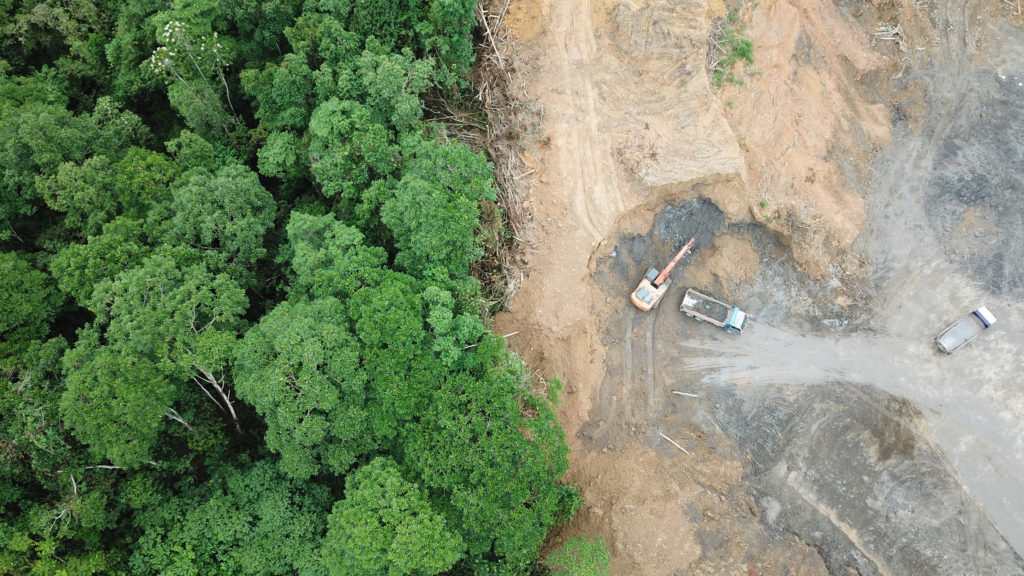In recent decades, acres of rainforests have disappeared, threatening the atmospheric balance of the planet and ending the lives of countless different species in the process.

Though one of the root-causes of deforestation can be traced back to illegal logging, the other big issue begins with some corporations like Golden Agri-Resources (GAR). A palm oil plantation company with a market value of £2.3 billion, it has recently committed a string of unsustainable business practices. And still, the London Stock Exchange Group publicly refused to remove it from its ‘influential investment index of environmentally friendly firms’.
While Friends of the Earth stated GAR have been “greenwashing”, their senior forests and lands campaigner Gaurav Madam adding: “GAR has been involved in well-documented financial crimes, environmental degradation, and human rights violation”, it is clear that they would be too much of a financial loss to our economy.
So why do we need to get rid of palm oil? What is so pressing that its eradication takes precedence over our wealth?
The issues can be divided into two categories: individual and global.
While the global repercussions of palm oil plantations will also impact human beings in the long-term – research shows that the oil has immediate burdens on our personal health too.
Jo Travers, London-based nutritionist, says that the topic remains controversial in the world of science but that the benefits that this ingredient brings are minimal.
She explains: “While it does have high vitamin E, which is an antioxidant, and high vitamin A, palm oil’s large saturated fat content (50%) may actually be worse for heart health.”
Thus, eating highly processed foods containing this ingredient may eventually lead to serious heart conditions – especially if it isn’t met with a balanced diet.
However, Jo highlights an even more threatening factor of the high demand in palm oil products: “The destruction of the rainforest for commercial production…may eventually be the biggest risk to health.”
The consequences do not stop there.

The oil, made from fruits of African palm trees largely located in Malaysia and Indonesia, has been in such high demand that (according to Greenpeace) “every 25 seconds an area the size of a football pitch is torn down in these rainforests” in order to make space for plantations.
NGOs such as Greenpeace have begun putting pressure on brands like Nestlé, Unilever and Mars – who promised long ago that they would reduce their palm oil production. Most recently, they challenged the world’s 16 biggest brands to name palm oil companies and the mills they use. While they only received 12 responses, they still considered it a step forward – and they are now transferring their focus to mass producer Wilmar.
Wilmar is responsible for most palm oil products on our supermarket shelves. But as Greenpeace also points out, it won’t stop until major businesses quit purchasing its oil.
It isn’t simple but it is possible to successfully produce without this ingredient.
Amongst the companies who already live a palm oil free existence is Cambridge-based chocolate company Ombar. Richard Turner, managing director of Ombar chocolate, confirms that they stay clear of the element and after a good 12 years of trading, he feels the consumer landscape has completely transformed compared to the beginning.
“We started in the kitchen in my house making chocolate”, when asked how he managed to achieve a palm-oil free, raw, fair trade chocolate he adds: “We had to read books, talk to people, experiment… we had no idea what we were doing! We just learnt from experience – that’s the best way to put it, but actually there never used to be any palm oil in chocolate”.
Indeed, the only reason it is used is as a replacement for the traditional fat cocoa butter – because it is a lot less expensive. Richard adds. “So, it is merely about cost-saving.”
Commercial use of this ingredient first peaked in the late 19thCentury, when the British industrial revolution lead to huge demand – mainly for machine lubricants and to produce food and soaps.
Aside from keeping palm oil off their radar, Ombar haven’t actively taken action against the mass production of this ingredient. However, the company is constantly developing new products, and every time palm oil is suggested, Turner strongly stands against it: “No, it’s a red line, we’re not going to use it.”
Ombar is still small, although their founder has high hopes for its future: especially as more consumers become aware of the down sides to palm oil.
“There’s possibly not enough sustainable palm oil available… or perhaps they just don’t care and they think this problem is going to go away,” he subtly adds.
Currently, 40% of the world’s palm oil producers are considered sustainable. To be categorised this way, they must be certified against the Roundtable on Sustainable Palm Oil (RSPO)’s eight criteria.
But it is argued that sustainable palm oil is not solving the biggest problem at hand: deforestation.
Records show that between 2001 and 2016, Indonesia, Malaysia and Papua New Guinea lost almost 31 million hectares of forest cover. Since 2007, this added up to 41,000 hectares a year.
While 34% of this loss is due to unsustainable palm oil plantations – over 38% is thanks to land reserved for these new sustainable palm oil growers.
Perhaps completely avoiding palm oil is a more effective solution.

Richard states that media attention has increased, so big companies are sitting up and taking notes – there is still a lot of work to be done but he concludes that “changes can be made, we’re making changes all the time.”
Amidst the businesses embracing change is UK cosmetics retailer Lush, who have vowed to “eradicate all traces of palm oil” within the near future.
In 2008, the company started removing it from its supply chain and initiated a campaign exhibiting the devastation of palm plantations, ‘Wash your hands of palm oil’. Their Ethical Buyer, Mark Rumbell has stated that their focus has become “reducing palm oil usage with a view to getting rid of it completely.”
Alternatives to palm oil are usually new to the market so require the experimentation on animals, thus they are unsuitable. While they have immensely reduced the use of this oil, a lot of their products still contain derivatives such as Sodium Lauryl Sulphate (SLS), Lauryl Betaine and Cetearyl Alcohol: the first being the most common.
Widely used in shampoos, shower gels and toothpaste, SLS is what turns our liquids to foam and traps oil-based dirt to aid in the cleansing process. Despite the satisfying lathering effect it creates, it requires palm oil to be produced.
Lush admit that 52 of their products still use SLS but they are working hard at finding alternatives and ingredients that can work alongside them so that they can at least reduce the necessity for palm oil.
Much of their other products also contain a blend of rapeseed oil and coconut oil, which contribute to their gourmet line of soaps.
While Ombar and Lush do their part in lessening palm oil production, how can we help?
For the everyday person, it starts with learning to take more caution with your groceries.
Five products you should take particular care with are:
- Chocolate
- Buttery Margarine
- Soap
- Peanut Butter
- Shampoo
- Some breads
When going to your local supermarket, carefully look at ingredients. Palm oil is often hidden under ‘vegetable oil’ so only purchase products with clearly labelled oils.
One final step you can take to helping our planet is by signing petitions by Greenpeaceand Change.org or donating to charities like WWF, www.rainforest–alliance.org and the Rainforest Foundation.